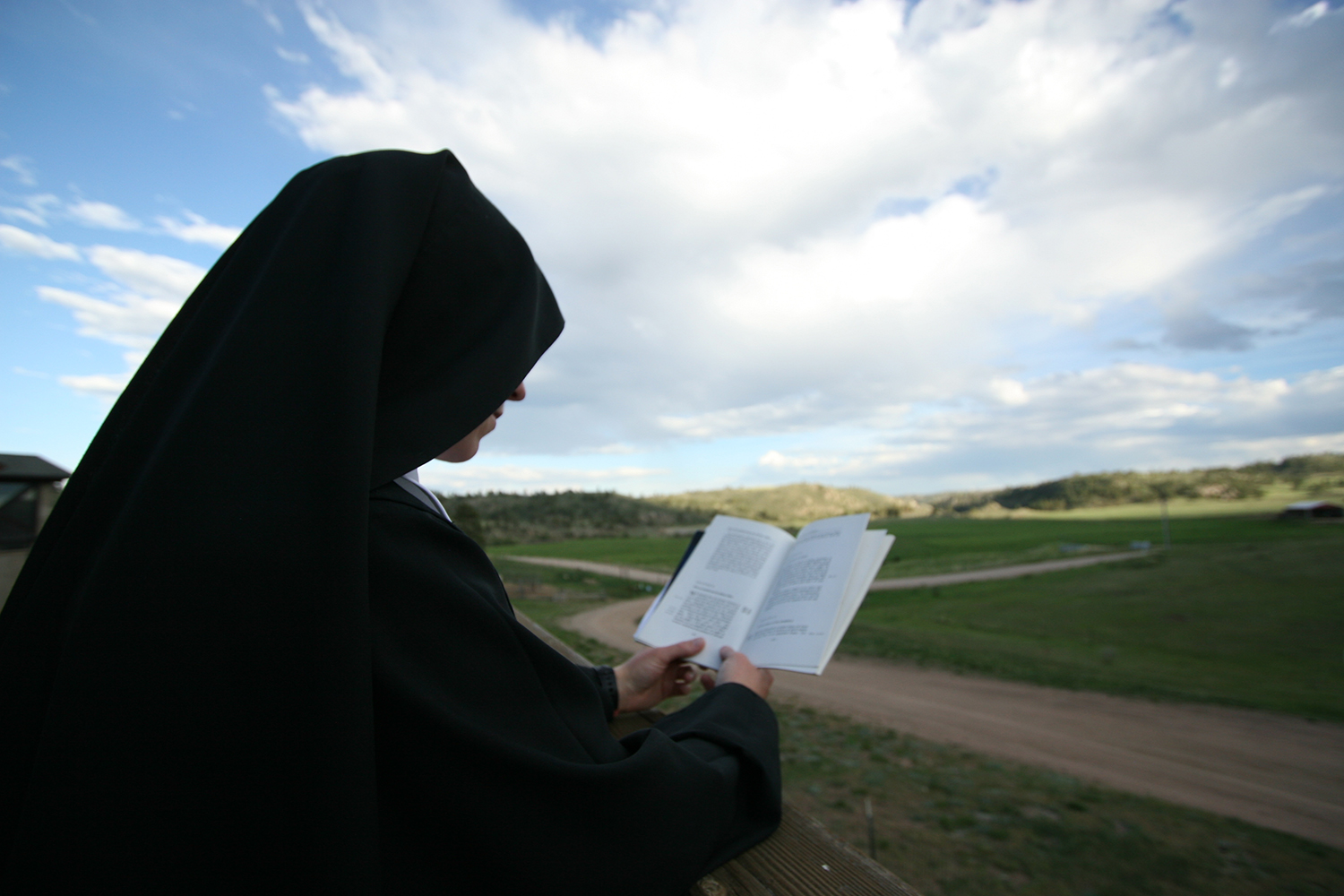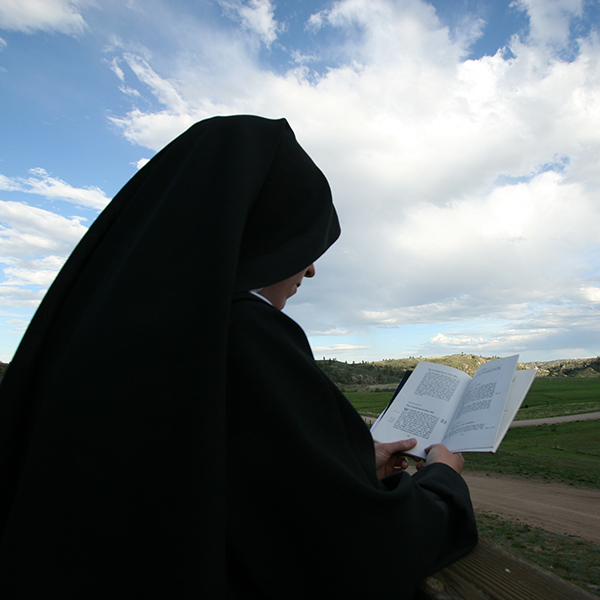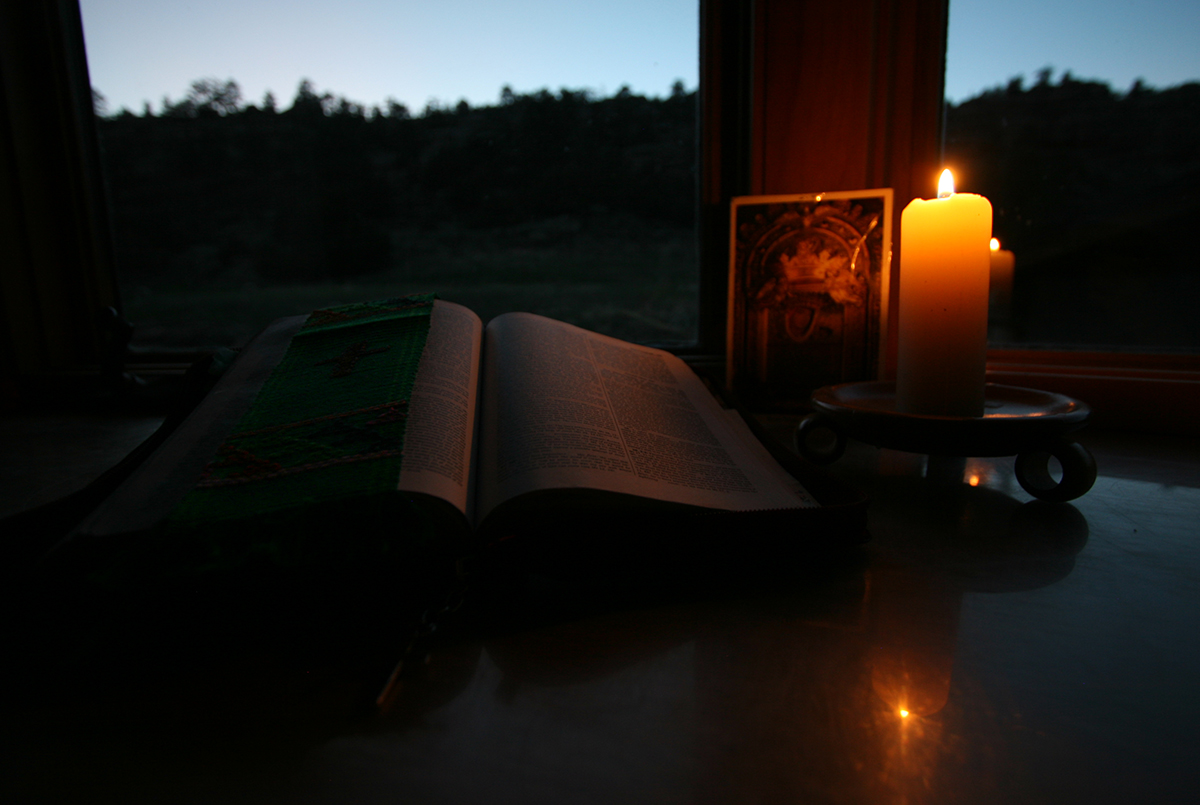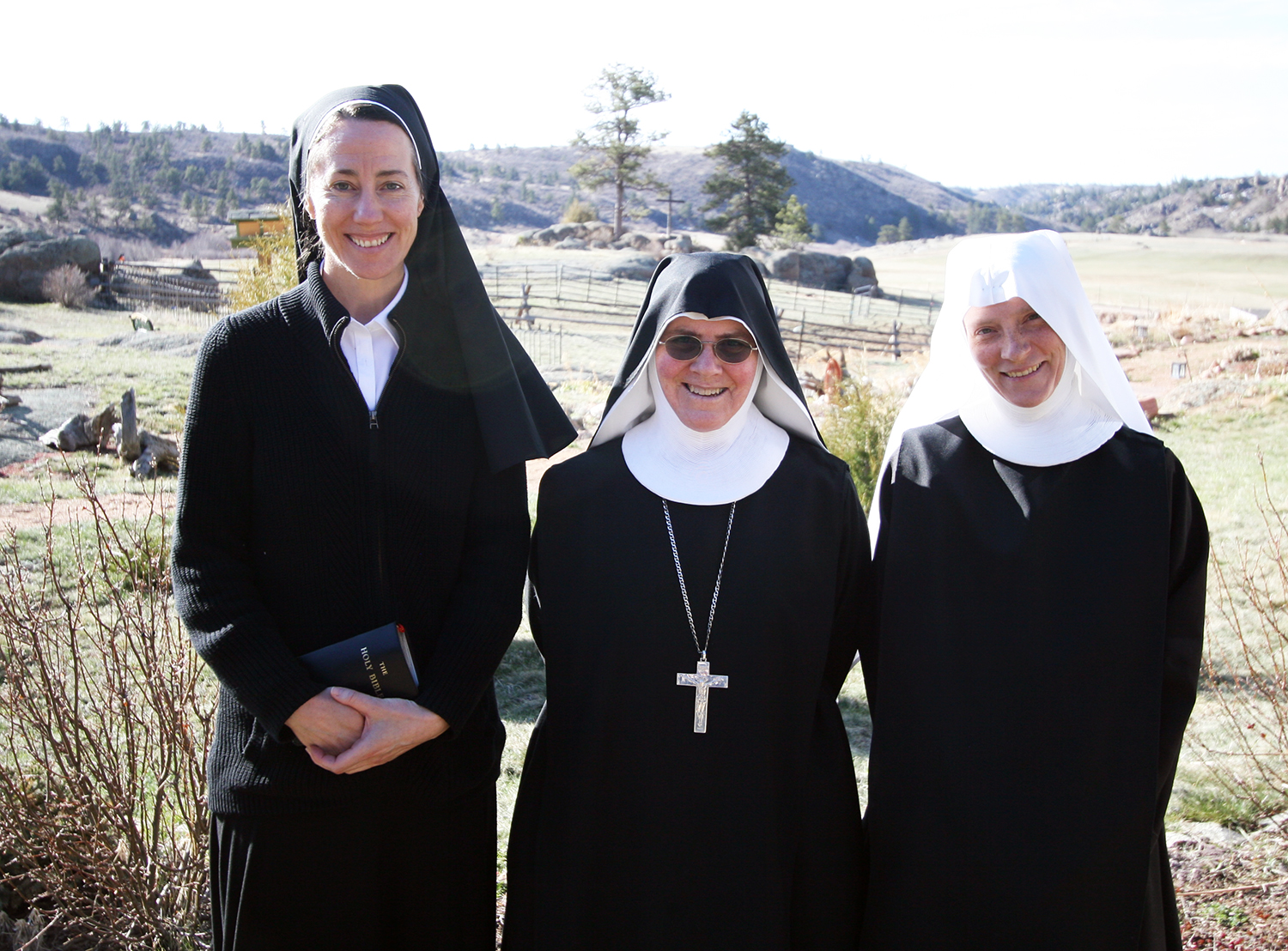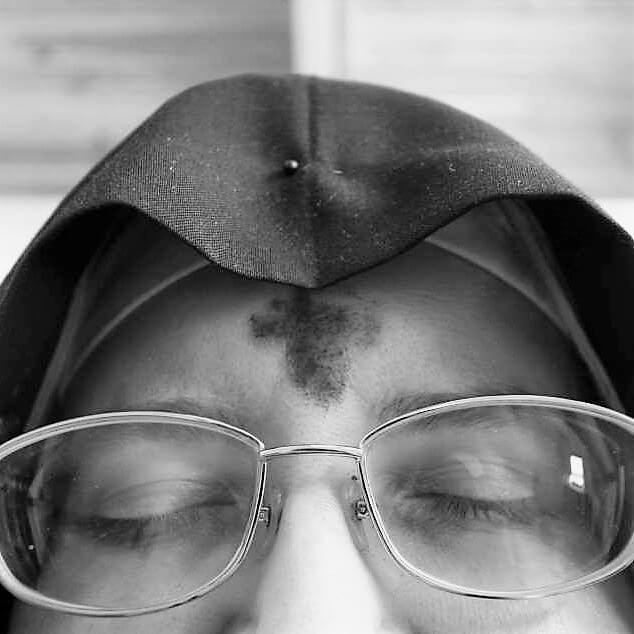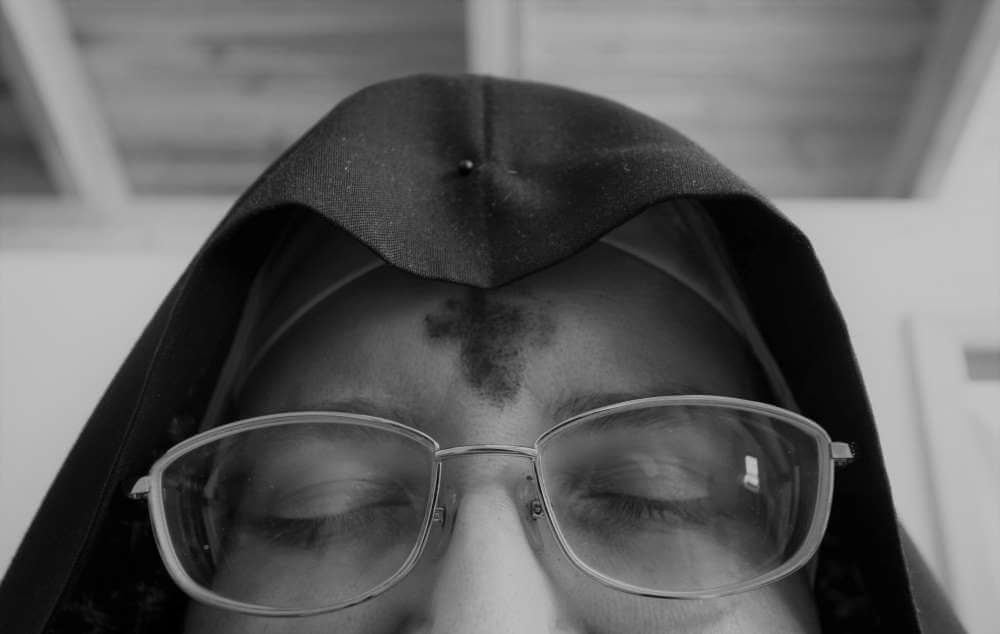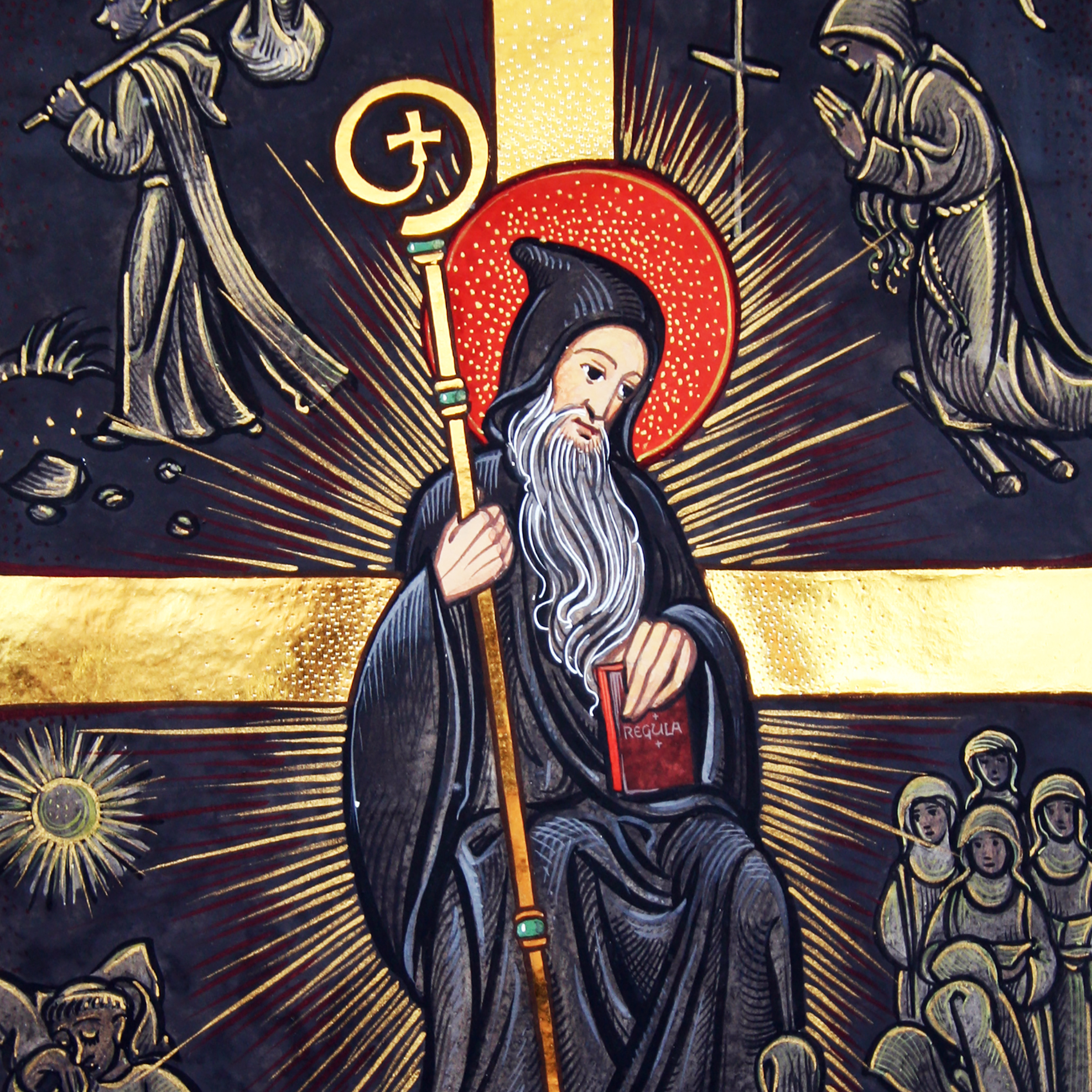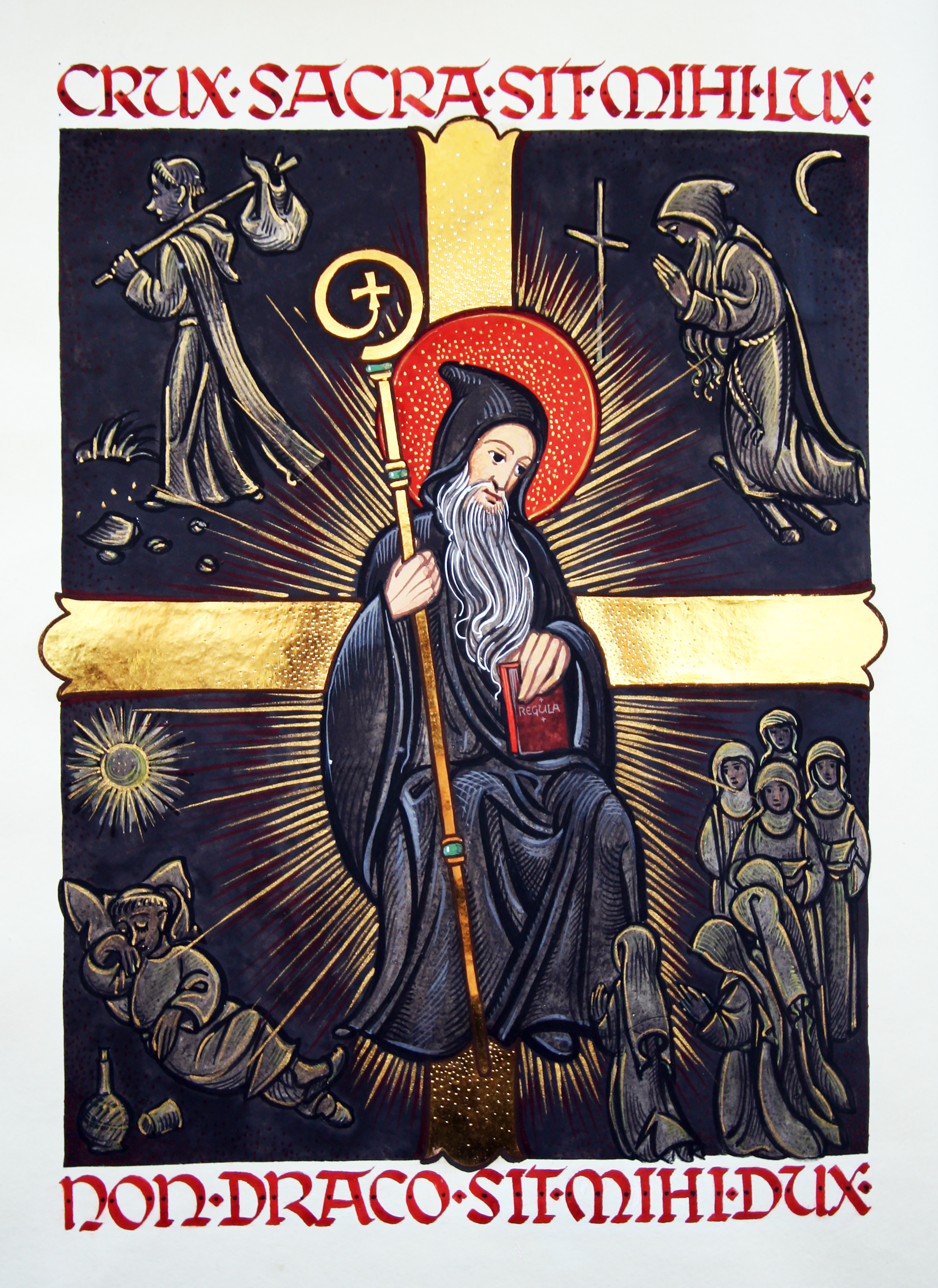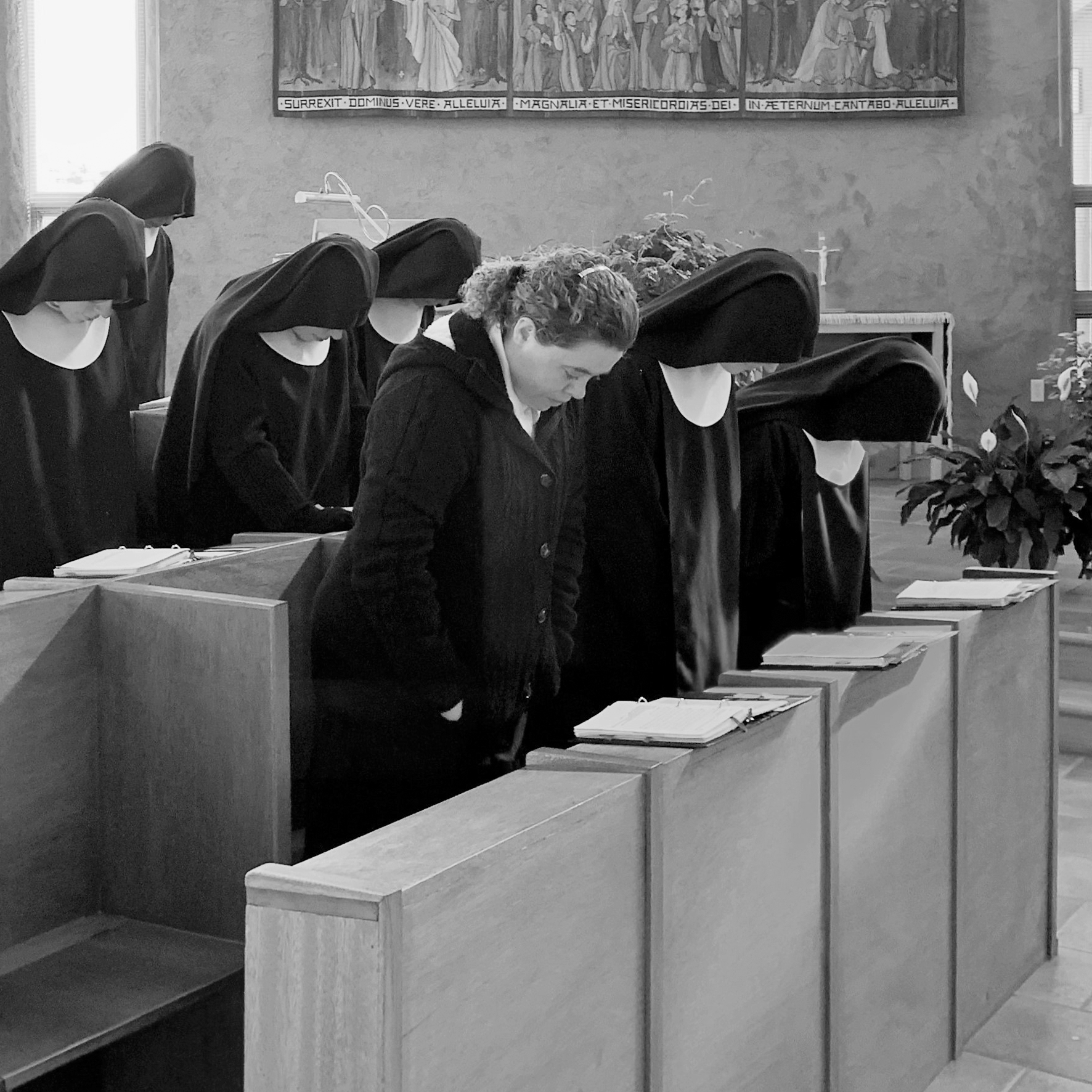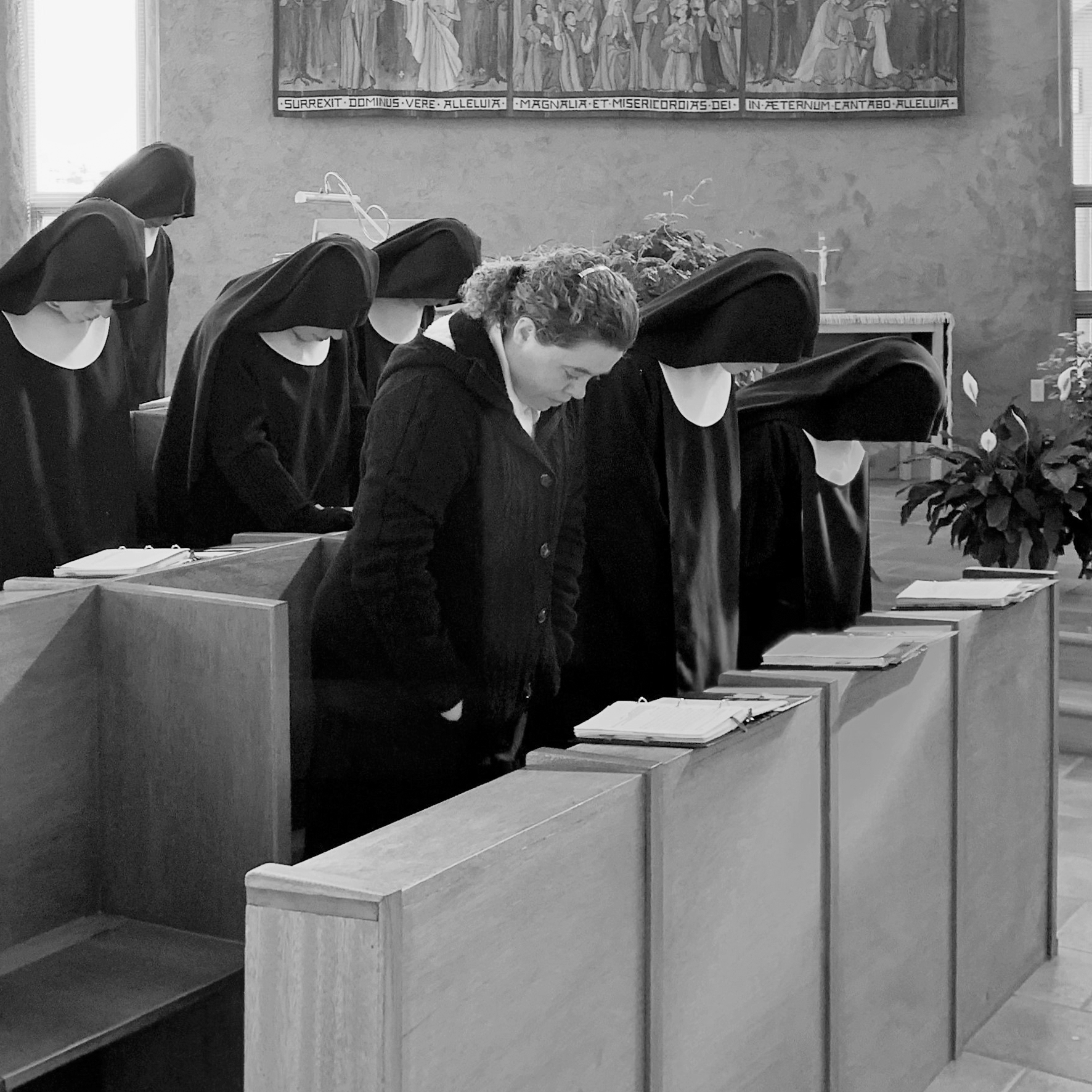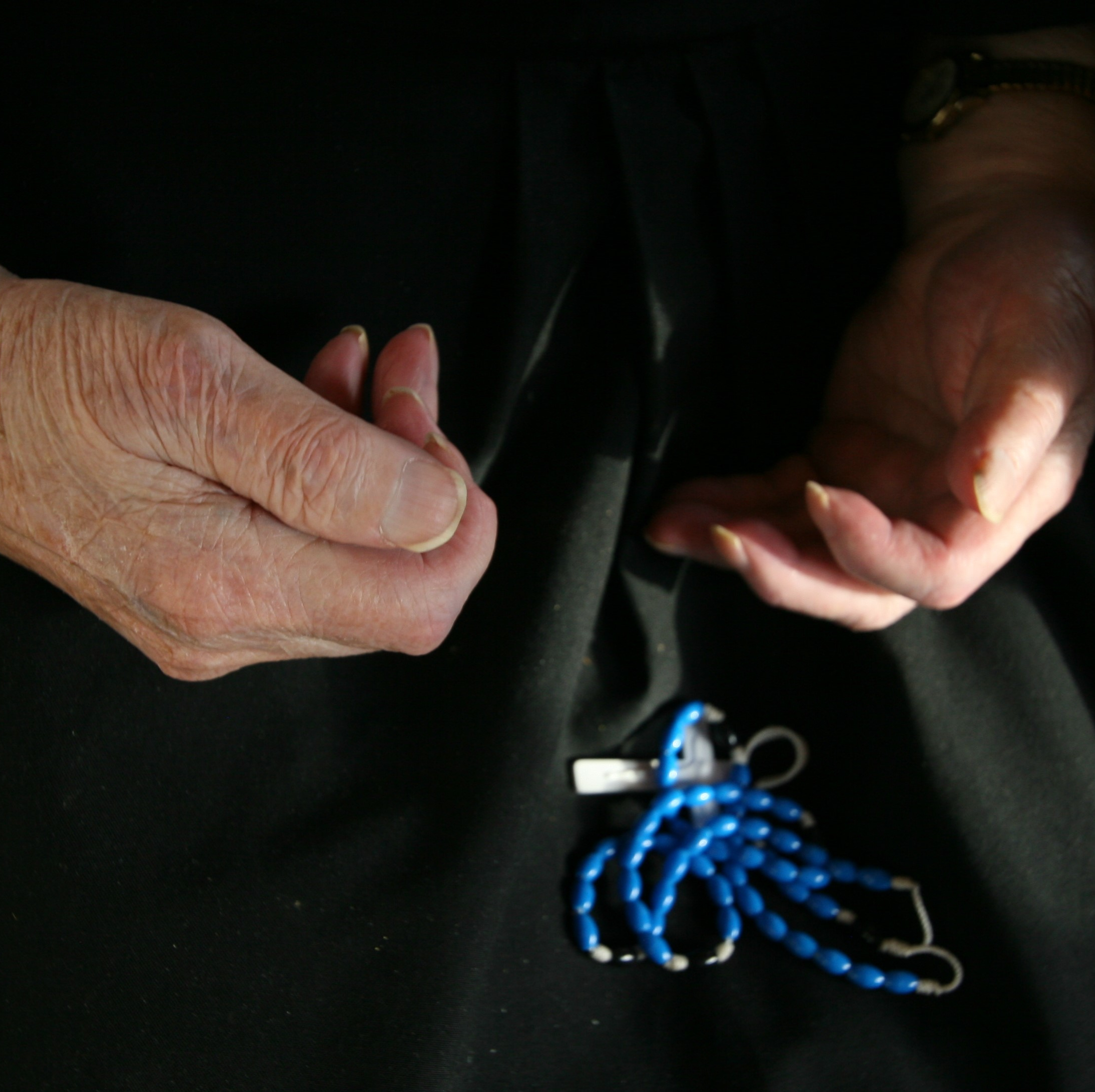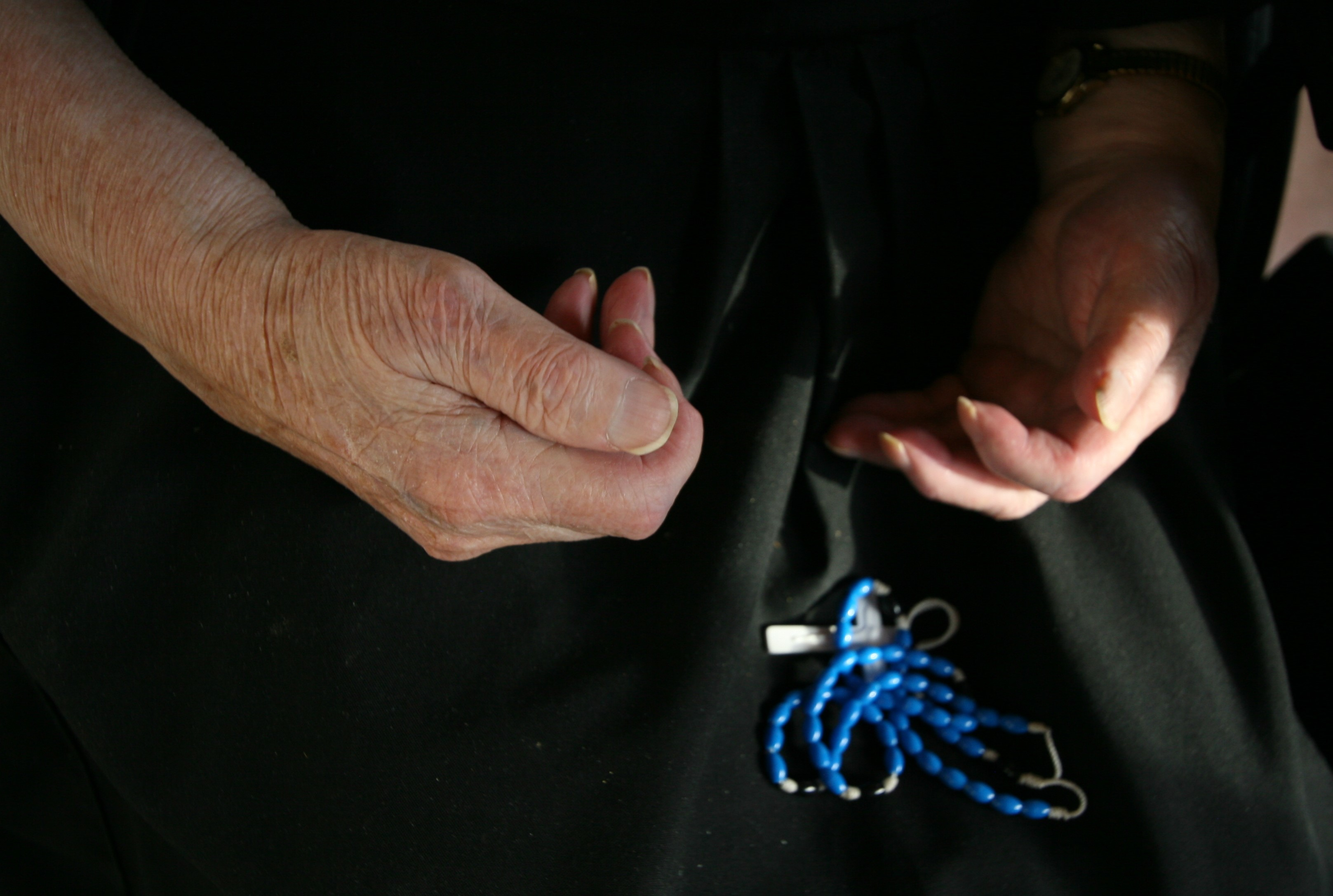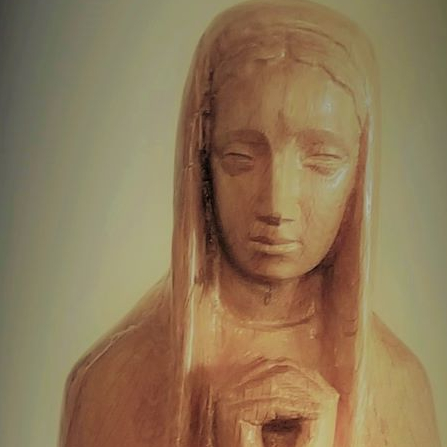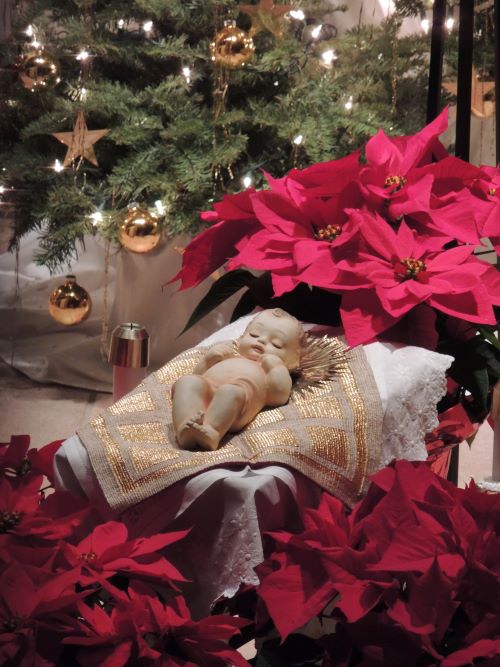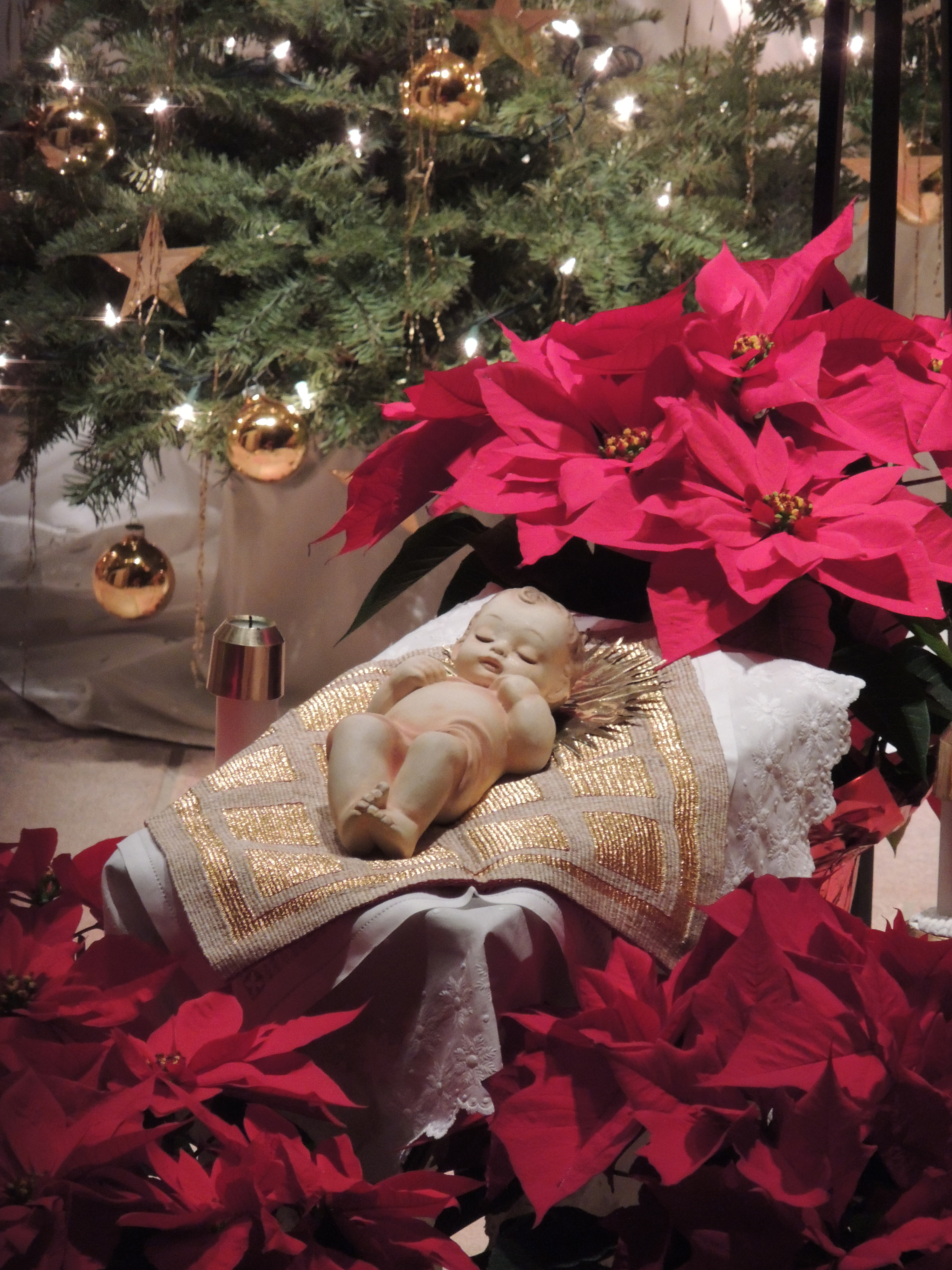A reflection on the purpose of the Holy Rule of St. Benedict by Mother Maria-Michael Newe, OSB
The Rule of St. Benedict outlines for us how to live a righteous life, and most importantly, it leads us to love. At the end of our lives, we will be judged by love. Just as the law isn’t going to save us so the Rule isn’t going to save us. But if we do what it says, it leads us to love.
In the Prologue, St. Benedicts says that his Rule is from “a father who loves you” (RB Prologue:1). His bottom line is that he’s writing it out of love. According to the dialogues of St. Gregory, at the end of Benedict’s life, his love needed to be perfected. So St. Scholastica, who was more perfect in love, was there to show him this last mark of his life that was needed—that love triumphs. The law was good and necessary, but it leads to love, and that’s its only purpose. (Click here for Gregory the Great’s account of this meeting).
Again, we hear in the Rule that “as we advance in the religious life and faith, we shall run the way of God’s commandments with expanded hearts and unspeakable sweetness of love” (RB Prologue:49). That’s what we’re all supposed to become. That’s what St. Benedict so desires for us. It is nothing more than the gospel message to love God and love our neighbor, and he shows us clearly a way to do this in his Rule. I challenge everyone to read Chapter 4 of the Holy Rule and pick one thing to work on for the good of the Body of Christ, for the better of another, for love. Do this seriously, that Christ may look upon you and say, “What a light in this world, which is so needed. I see clearly that my death meant something.” And in this way we will comfort the heart of Christ.
